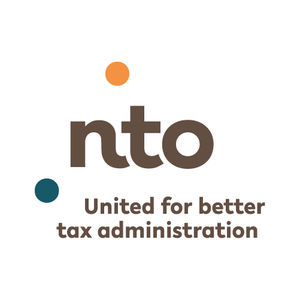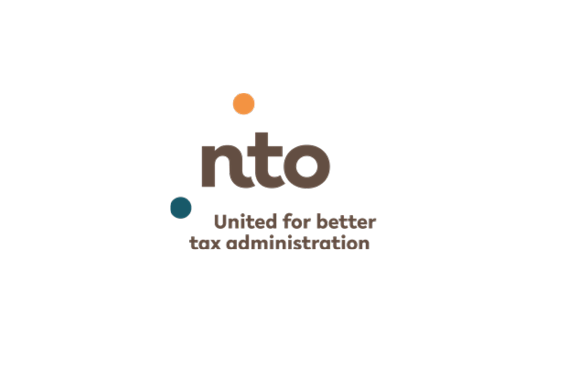North & Central America, regional
year
all
3 projects
amount
177 660.01 USD
disbursement
177 659.99 USD
Membership fee to Inter-American Center of Tax Administrations (CIAT)
year
2016
1 project
amount
79 814.22 USD
disbursement
79 814.20 USD
Training Course for Central America Police Force about Illicit Economy and Financial Flows Investigations and Asset Recovery
year
2017
1 project
amount
15 807.69 USD
disbursement
15 807.69 USD
Membership fee to Inter-American Center of Tax Administrations (CIAT)
year
2017
1 project
amount
82 038.10 USD
disbursement
82 038.10 USD
bilateral undefined
year
all
8 projects
amount
592 311.28 USD
disbursement
848 590.28 USD
Italian contribution to WCO budget
year
2017
1 project
amount
458 911.06 USD
disbursement
458 911.06 USD
Training activity for officials from ASEAN Countries (Association of Southeast Asian Nations)
year
2018
1 project
amount
5 960.11 USD
disbursement
5 960.11 USD
Training activity for officials from Guinea and Senegal
year
2018
1 project
amount
8 391.36 USD
disbursement
8 391.36 USD
Training activity for officials from Gambia
year
2018
1 project
amount
8 639.21 USD
disbursement
8 639.21 USD
Training Course for officials of CARICOM countries, on Illicit Economy and Financial Flows Investigations and Asset Recovery
year
2018
1 project
amount
18 210.79 USD
disbursement
18 210.79 USD
Training activity for officials from Niger Mali and Ciad
year
2018
1 project
amount
9 477.16 USD
disbursement
9 477.16 USD
Membership fee to Inter-American Center of Tax Administrations (CIAT)
year
2018
1 project
amount
82 721.59 USD
disbursement
82 721.59 USD
Supporting tobacco taxation policies in selected African countries to contribute to the attainment of SDGs in Etiopia,Mozambico,Tanzania,Uganda
year
2018
1 project
amount
0.00 USD
disbursement
256 279.00 USD
Developing countries, unspecified
year
all
31 projects
amount
1 967 384.15 USD
disbursement
1 967 383.02 USD
Training activity for officials from member countries of the Inter-American Center of Tax Administrations - CIAT.
year
2017
1 project
amount
11 793.48 USD
disbursement
11 793.48 USD
Training activity for officials from member countries of the Sahel (Niger, Mali, Mauritania, Burkina Faso, Chad)
year
2017
1 project
amount
10 293.09 USD
disbursement
10 291.96 USD
Africa Academy for Tax and Financial Crime Investigation
year
2017
1 project
amount
225 453.73 USD
disbursement
225 453.73 USD
OECD Specialty Programme 1^ ediction
year
2017
1 project
amount
5 758.09 USD
disbursement
5 758.09 USD
OECD Global Relations Programme
year
2017
1 project
amount
28 181.72 USD
disbursement
28 181.72 USD
OECD Specialty Programme 2^ ediction
year
2017
1 project
amount
5 758.09 USD
disbursement
5 758.09 USD
Teaching activity - OECD Global Relations Programme
year
2017
1 project
amount
3 088.43 USD
disbursement
3 088.43 USD
Training activity for officials from member countries of the OSA (Organization of American States)
year
2017
1 project
amount
17 459.14 USD
disbursement
17 459.14 USD
Teaching activity - OECD Global Relations Programme
year
2017
1 project
amount
1 240.12 USD
disbursement
1 240.12 USD
Supporting tobacco taxation policies in selected African countries in Ethiopia, Mozambique, Tanzania, Uganda
year
2017
1 project
amount
554 492.17 USD
disbursement
554 492.17 USD
OECD Foundation Programme (basic course)
year
2017
1 project
amount
11 577.05 USD
disbursement
11 577.05 USD
OECD Intermediate Programme (intermediate course)
year
2017
1 project
amount
18 026.15 USD
disbursement
18 026.15 USD
Teaching activity - OECD Global Relations Programme
year
2018
1 project
amount
3 920.69 USD
disbursement
3 920.69 USD
OECD Specialty Programme - VAT/GST FRAUD INVESTIGATION
year
2018
1 project
amount
11 471.73 USD
disbursement
11 471.73 USD
OECD Foundation Programme - CONDUCTING FINANCIAL INVESTIGATIONS - Basic Course
year
2018
1 project
amount
12 415.91 USD
disbursement
12 415.91 USD
OECD Specialty Programme - Asset Recovery freezing and seizing assets
year
2018
1 project
amount
12 545.73 USD
disbursement
12 545.73 USD
OECD Intermediate Programme - Conducting Financial Investigations
year
2018
1 project
amount
17 172.19 USD
disbursement
17 172.19 USD
Annual contribution to the OECD Global Relations Programme
year
2018
1 project
amount
29 505.49 USD
disbursement
29 505.49 USD
OECD 'Specialty Programme' - Asset Recovery freezing and seizing assets
year
2019
1 project
amount
11 899.70 USD
disbursement
11 899.70 USD
OECD 'Intermediate Programme' - Conducting Financial Investigations
year
2019
1 project
amount
16 287.92 USD
disbursement
16 287.92 USD
OECD 'Specialty Programme' - VAT/GST FRAUD INVESTIGATION
year
2019
1 project
amount
10 881.00 USD
disbursement
10 881.00 USD
Teaching activity - OECD Global Relations Programme
year
2019
1 project
amount
5 324.49 USD
disbursement
5 324.49 USD
Teaching activity - OECD Global Relations Programme
year
2019
1 project
amount
6 947.90 USD
disbursement
6 947.90 USD
Teaching activity - OECD Global Relations Programme
year
2019
1 project
amount
4 586.60 USD
disbursement
4 586.60 USD
Teaching activity - OECD Global Relations Programme
year
2019
1 project
amount
1 775.70 USD
disbursement
1 775.70 USD
Italian contribution to WCO budget
year
2019
1 project
amount
424 120.00 USD
disbursement
424 120.00 USD
Teaching activity - OECD Global Relations Programme
year
2019
1 project
amount
1 126.79 USD
disbursement
1 126.79 USD
Annual contribution to the OECD Global Relations Programme
year
2019
1 project
amount
27 986.12 USD
disbursement
27 986.12 USD
OECD 'Foundation Programme ' - CONDUCTING FINANCIAL INVESTIGATIONS - Basic Course'
year
2019
1 project
amount
11 776.56 USD
disbursement
11 776.56 USD
ANNUAL CONTRIBUTION TO THE OECD GLOBAL RELATIONS PROGRAMME
year
2020
1 project
amount
28 490.03 USD
disbursement
28 490.03 USD
Italian contribution to WCO budget
year
2020
1 project
amount
436 028.34 USD
disbursement
436 028.34 USD
Caribbean & Central America, regional
year
all
3 projects
amount
177 512.12 USD
disbursement
177 512.12 USD
Training activity for officials on Customs and Border Police Training
year
2019
1 project
amount
20 317.92 USD
disbursement
20 317.92 USD
Membership fee to Inter-American Center of Tax Administrations (CIAT)
year
2019
1 project
amount
77 980.52 USD
disbursement
77 980.52 USD
MEMBERSHIP FEE TO INTER-AMERICAN CENTER OF TAX ADMINISTRATIONS (CIAT)
year
2020
1 project
amount
79 213.68 USD
disbursement
79 213.68 USD




